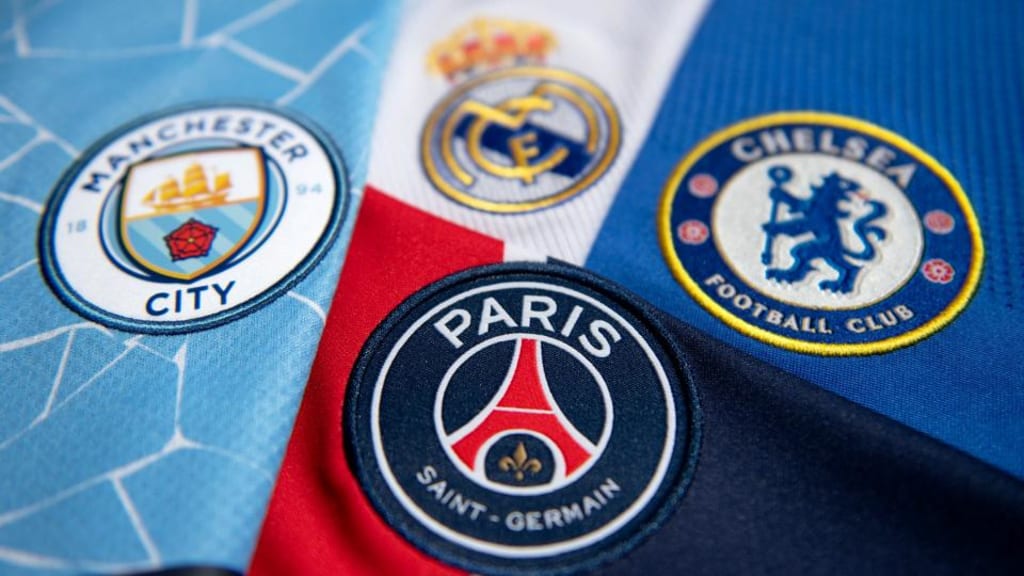What Manchester City's Domination of Football Teaches Us
A tale of money, long term vision and equality

Money
There is undeniable evidence that football's most successful teams are its wealthiest. Out of the last 20 editions of the Champion's League, 19 have been won by the clubs with the highest financial resources today, with the sole exception of Porto in 2003–2004.
While historically dominant teams like Real Madrid, Barcelona, Manchester United or Bayern Munich have enjoyed long-standing success, the past two decades have seen the rise of "new rich" clubs that have come to challenge their reign.
Chelsea, Manchester City and Paris St Germain (PSG) serve as the prime examples. All three, previously considered small to medium-sized teams, have transformed into serious challengers to the historically dominant clubs thanks to substantial financial investments.
Chelsea's transformation began in 2003 when Roman Abramovich acquired the club. Manchester City underwent a similar change in 2008 under Abu Dhabi United Group's ownership, while PSG experienced its own makeover in 2011 when acquired by Qatar Sports Investments.
Prior to their acquisitions, these three teams had collectively won a meagre 5 league titles and no Champions Leagues. Since being acquired, they have achieved 21 league titles and three Champions League trophies.
Long term vision
Manchester City stands out among these three clubs as the only one to maintain a coach for more than three consecutive seasons. Since 2008, they have had five coaching changes, with an average tenure of around three years per coach. Notably, they have enjoyed seven years of continuity under Pep Guardiola.
In contrast, Chelsea has experienced a staggering 20 coaching changes since Abramovich's takeover in 2003, averaging just one year per coach. Similarly, PSG has had seven coaching changes since 2011, averaging approximately 1.6 years per coach.
Despite Chelsea's two Champions League victories since 2004, they have secured only five Premier League titles, while Manchester City has won seven in a shorter time span. Additionally, Chelsea has not achieved the same level of dominance displayed by City, who achieved a remarkable treble in the past season by winning three tournaments within the same campaign.
Equality
Professional football teams in Europe generate revenue through three primary sources: broadcasting or TV rights (both national and international), commercial avenues (such as sponsorships, merchandising, and utilisation of stadiums), and Matchday earnings from ticket sales.
In 2022 Broadcasting revenues represented on average for European clubs 44% of their income, Commercial 41% and Matchday 15%.
Most European leagues sell their broadcasting rights collectively although the distribution of these rights among clubs differs significantly. The English Premier League stands out as the most egalitarian in this regard.
The difference between the top-earning club and the median-earning club in the English Premier League is 1.2 times. In comparison, the gap in Germany is 1.7 times, France 2.5 times, Italy 2.8 times, and Spain 3.1 times. As a result, of the top 30 teams in Europe with higher revenues in the 2021–2022 season, 16 are English, 5 Spanish, 3 Italian, 3 German, 1 French, 1 Portuguese and 1 Dutch.
The more equitable distribution of broadcasting rights in the Premier League has arguably contributed to its heightened level of excitement. The ability of smaller clubs to financially compete enables them to acquire talented players and engage top-tier coaches, making the league more captivating to watch compared to its counterparts.
This serves as a prime illustration of a virtuous cycle. Back in 2012, the English Premier League's broadcasting rights were already being sold for €500–600 million more than those of the Spanish and Italian leagues. Today, the gap has expanded to approximately three times that amount.
The league's increased entertainment value has attracted a larger international audience. Currently, international broadcasting rights contribute 53% of the total television revenues for England, surpassing the figures of 48% for Spain, 28% for Italy, 24% for Germany, and 22% for France.
Some commentators argue that the Premier League's competitiveness is overvalued and that other less well-known factors play a bigger role like the league's heritage, strong local fan base, business-friendly environment or excellent marketing strategies.
However, the Premier League does not stand alone as evidence that a more egalitarian system can bring exceptional outcomes. The NBA in the United States also implements comparable measures such as equal distribution of national broadcasting rights and salary caps that restrict the amount each team can invest in player salaries.
Lessons
The combination of financial investment, long-term vision and a level playing field offers many lessons, particularly in the realm of education. In an era driven by knowledge, countries like Israel, which lack abundant natural resources, serve as evidence that a nation's most precious asset lies in its people.
Investing in education over the long term pays off, as countries like Vietnam are proof of. In the past three decades, Vietnam has outpaced both its regional counterparts and lower-middle-income countries regarding economic growth.
Offering high-quality education for students regardless of their social background or geographical location within a country ensures that no talent goes to waste. A well-educated workforce not only attracts greater investment but also generates a higher number of successful new businesses, patents, and research breakthroughs.
About the Creator
David Abuchar
Colombian living in Brussels. I write about football & current affairs






Comments
There are no comments for this story
Be the first to respond and start the conversation.